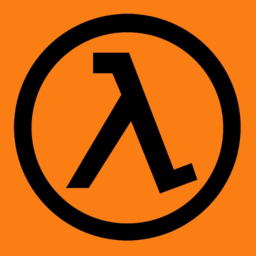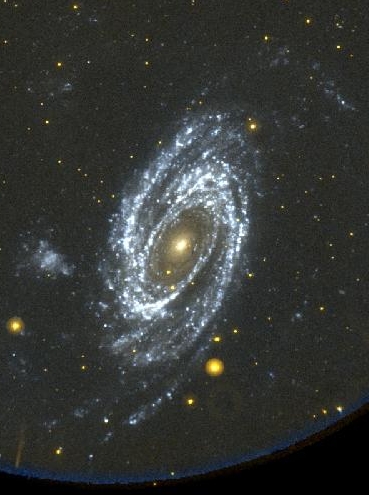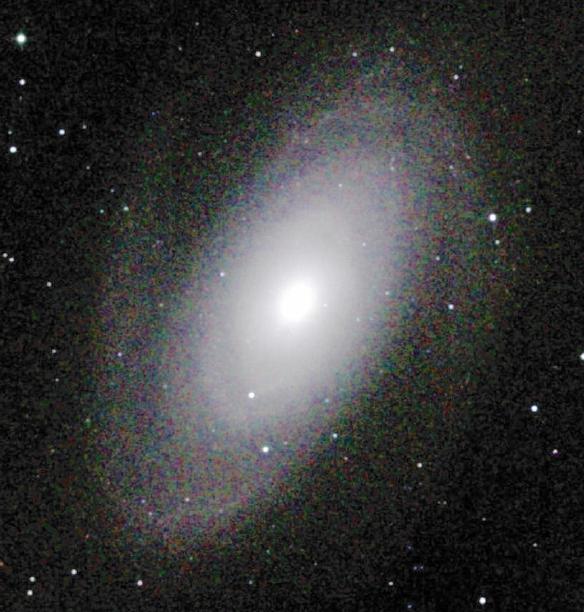Quiz answers!
-
 by
chucksensei
by
chucksensei
I want answers to the quizzes!
Some of the questions I don't know the answer to, nor where I can quickly find the answer! I want to know them.Education. It's the candle in the dark of ignorance, superstition, and the abyssmal dark of religion.
Posted
-
 by
faiq
by
faiq
I also want to know them 😦
Posted
-
 by
Padme-1
by
Padme-1
Like wise.
Posted
-
 by
JeanTate
by
JeanTate
Good luck with that!
As far as I know, there is no, relatively straight-forward, way to find the answers.
If you can remember the specific question, there are certainly zooites - both here and in the GZ Forum - who both confidently know the answer and would be more than willing to explain it in as much detail as you need (I am one such zooite). Further, these are ordinary zooites, not professional astronomers or members of the science team.
This point has been raised before - more than once, if my memory still works - but no one from the Zooniverse project team has ever addressed it (to my knowledge). 😦
Posted
-
 by
jonathanfox5
by
jonathanfox5
Just to add my support for this. I too would find it useful to have the answers so that I can work out what I got incorrect and therefore go research it.
Posted
-
 by
Shaedlaer
by
Shaedlaer
It could be useful if we could possibly see answers of other users (or statistic of those possibly even better). Then we perhaps could learn to do it better over time. The way it is currently we don't get feedback at all unless we post a discussion asking if what we're seeing is correct;)
Posted
-
 by
JeanTate
by
JeanTate
There's another wrinkle: to discuss the questions (and answers), you have to have the question, exactly as it was (is) worded!
If I recall correctly (and it's likely I haven't/don't), some of the questions in the first round were all too easily misunderstood. As worded, the question was fairly clear ... if you knew enough about the topic to unpack it; however, if you read it too quickly, or answered what you thought you'd read, you'd likely get the wrong answer (and have no idea why). It didn't help that the question itself disappeared, so you had only your memory to go by (as to what the exact wording was).
One other thing: as I understand it, the purpose of the quiz is to get some understanding of zooites' understanding of certain aspects of astronomy, physics, astrophysics, and cosmology. As such it is completely disconnected from any pedagogical or educational aim of this particular Zooniverse project (and it may be that the people involved are also completely disconnected, not even know of the others' existence!) It may also be that both teams are separate from the GZ Science Team, with no overlap and no communication.
Posted
-
 by
geert3
by
geert3
why not simply show a short explanation for each question asked at the end of the quiz? Or at least indicate 'correct/incorrect' when having answered. What is the point of asking the questions otherwise?
Posted
-
 by
suelaine
by
suelaine
I think that I would have received an F+ on all of these questionnaires, but I am very interested in what the answers are and why. Perhaps a tall order
Posted
-
I am very much interested in not only contributing to this project but also learning from it. Having the answers for the quizzes, preferrably with explanations (or links to explanations) would be awesome.
Something else that would be really really cool is a tutorial. Before classifying galaxies, there should be a tutor that would tell you what to look for when classifying. This might also improve the quality of the classification in tenfolds.
Posted
-
 by
Tonibee
by
Tonibee
Yes, it was a suprise to be left in limbo. But if I properly understood the intention of the quiz as being to collect data about raw knowledge, then to give the answers might corrupt future data or mean that new questions have to be written all the time.
You'll have to copy the question, answer it and then research it. One of your concerns was ease of looking up answers; the simplest method is to paste the whole question into google (without quotes) and avoid the first few sponsored links (initially).
Posted
-
 by
v3nom
in response to suelaine's comment.
by
v3nom
in response to suelaine's comment.
suelaine
I think that I would have received an F+ on all of these questionnaires, but I am very interested in what the answers are and why. Perhaps a tall ordersuelaine, I find you lack of faith disturbing 😉
I asked similar question here:
http://talk.galaxyzoo.org/chat/discussions/DGZ1006dkrIt just would be very nice to get correct answers at the end of quiz or after each question.
Posted
-
 by
JeanTate
by
JeanTate
There are two threads in the GZ forum which may be interest: Who writes the multiple choice questions that appear while classifying galaxies? (an old thread, with some recent updates), and Second Zooniverse Project Workshop: 29 and 30 April 2013 (the link takes you to the last - of 12 - pages; that's where the posts on the quizzes can be found). There is also a similar thread in the Old Weather forum, and one in Planet Hunters Talk with posts on quizzes, by the other two 'zooite representatives' (i.e. katsee and Janet).
Posted
-
 by
handows
by
handows
No answers OR feedback. really... @ least tell us who is responsible for that decision so we can mail them some flee eggs or something.
Posted
-
 by
zutopian
by
zutopian
I found following paper "Measuring the Conceptual Understandings of Citizen Scientists Participating in Zooniverse Projects: A First Approach" and I guess, that they are going to use the results of the current Quiz to write a further paper.
Posted
-
 by
KWillett
scientist, admin, translator
by
KWillett
scientist, admin, translator
Hi everyone,
Yep - the paper on our first results for the project will be published in December 2013 (a preprint is available now). Our goal is to do some real research on whether the amount of participation in Zooniverse projects increases understanding of the scientific concepts involved. As discussed in the paper, though, the first set of results weren't conclusive, in large part because there weren't many users who completed the entire quiz.
We're currently gathering data from a modified set of quizzes, which started in September 2012. The results from these are still being collected and analyzed, though, and share some of the same content as the old version. As a result, we don't want to publish a list of answers yet; this would make it really difficult for us to establish whether learning is coming from participation, rather than having answers readily available.
If you're curious about particular questions after you've answered them, please do discuss them with other Zooniverse participants and scientists, as well as checking the massive amount of information available on the web (NASA, Wikipedia, etc). Since the research is still ongoing, though, we can't publish a list of the answers yet. So please, no flea eggs.
Posted
-
 by
JeanTate
by
JeanTate
I googled "Measuring the Conceptual Understandings of Citizen Scientists Participating in Zooniverse Projects: A First Approach" (thanks zutopian), and easily found this page. Here's an interesting line on that page:
Received 25 January 2013 Accepted 05 June 2013 Published online 10 July 2013
I clicked the "Full Text" button and got a 14-page PDF. It is very interesting reading! 😃
From the paper, I learned that the initial post I made in the GZ forum, on this topic, must have been in response to the "revised implementation strategy", which ran "from August 2011 until September 2012".
Here's the para on how ZACS was developed (I edited out the parts concerning the other quiz):
The first drafts of the ZACS [] were composed of items we adapted from the Center for Astronomy
Education’s (CAE) existing bank of summative assessment questions (used in prior research efforts, e.g.,
Hudgins et al. 2006; Prather et al. 2004; Prather, Rudolph, and Brissenden 2009; Wallace, Prather, and Duncan- and formative assessment Think-Pair-Share questions. We then recruited members of CAE, the
Zooniverse team, and galaxy astronomers and planetary scientists, whose specialties overlap with the survey
concepts to critique the items for their scientific accuracy and whether or not the items had the right content
focus and appropriate level of conceptual rigor for the target audience. We went through several iterations of this critiquing process before project members were in agreement about the final versions of the items and the overall face validity of the ZACS
The fact that a question1 concerning the relationship between galactic morphology and stellar populations - a question keyed to three black&white images, none with scales, and no indication of what bands (colors) were used to produce them - survived the critiquing process seems to me to be rather ... disappointing. Perhaps it's because the reviewers are so steeped in the 'lies to children'WP that comprises the normal education progression in astronomy (and is fairly faithfully mirrored in popular books and magazines etc) that they themselves did not consider it possible that zooites could become au fait with a level of astronomy knowledge not usually found outside post-grad programs?
Yet consider this GZ forum post, by NGC3314 (Bill Keel)2:
Here's an example. M81 is one of the brightest nearby galaxies within the SDSS. The SDSS color image looks like this:
We see the familiar blue tint of star-forming regions marking its beautiful grand-design arms, and the more orange light dominated by red giants from the older population of stars in the central bulge. But now let's look outside the visible octave of the spectrum. This image is made from GALEX data, where the different RGB colors correspond to bands across the ultraviolet (at last in the right wavelength order):

It's all spiral arms! The central bulge has faded so much (because its stellar population is redder) that we'd probably classify this as some kind of ring+spiral.
In contrast, we can look at a set of bands in the near-infrared. Here's M81 from the 2MASS IR sky survey:
Dude, who took my spiral? The young population fades away and we see the central bulge and older, smoother parts of the disk. Which of these is the "real" M81? All of them - and none. At any rate, we'll know more about galaxy structure, and in particular how to tell what changes with cosmic time, if we understand how our classifications do and do not change with wavelength,
Look at the date: July 26, 2008 2, well over two years' before the first implementation of ZACS.
1 Actually more than one, any one of the first four questions in Figure 9 (I won't copy them, and the 'correct answers', here; needless to say, I think many of the questions are at best ambiguous, and at worst downright misleading
2 Being the GZ forum, presumably many of the zooites who answered ZACS had read this post (it has been "Read 1210 times"), even if they did not explicitly remember it. Besides, it's just one example of several like this on the GZ forum, from before the start of ZACS
3 By a curious coincidence, the thread from which this post is taken is a proposal to do something very much like the latest iteration of Galaxy Zoo; namely classify images taken in IR ... a proposal by an ordinary zooite! 😮
Posted
- and formative assessment Think-Pair-Share questions. We then recruited members of CAE, the
-
 by
klmasters
scientist, admin
by
klmasters
scientist, admin
Jean - the point of the study was to measure how "au fait" Zooites are with general astronomy knowledge - as Kyle explained. So it was necessary to include obvious questions yes - that's kind of the point.
And we should always remember that only a small fraction of the people who classify at GalaxyZoo have ever visited the forum (or even talk).....
Posted
-
 by
JeanTate
in response to klmasters's comment.
by
JeanTate
in response to klmasters's comment.
I'm going to take a second run at this ...
The multiple-choice items included in the ZACS and the LCCI were explicitly designed to be well-matched to the conceptual knowledge and reasoning abilities of students who complete a college-level general education introductory astronomy courses on these topics and to elicit and assess a wide range of known conceptual and reasoning difficulties.
From the paper (my bold).
It is a very long time since I was in high school, and a long time (somewhat shorter though) since I taught high school physics and mathematics. However, back then, students were taught - even drilled - that charts/plots/graphs/whatever had to have labeled axes and meaningful legends. To the extent that we even set exam questions to test whether they'd absorbed this fundamental.
If, as the above quote says, "members of CAE, the Zooniverse team, and galaxy astronomers and planetary scientists, whose specialties overlap with the survey concepts to critique the items for their scientific accuracy and whether or not the items had the right content focus and appropriate level of conceptual rigor for the target audience", did no one say, in effect, 'Hey! no scale! no indication of band/filter!'? Is it the case that, in today's "college-level general education introductory astronomy courses" lecturers/professors are totally cool with unlabeled plots? Did none of the reviewers even for a moment think 'well, my college-level general ed intro astronomy students should scream 'NO LABELS!' 'NO METADATA!' on seeing those images; after all, I made that the focus of my second lecture!'?
Sorry, klmasters, but to this old fuddy-duddy the quoted text of Prather et al. strongly points to a depressing relapse in what a much younger me tried hard to teach.
And we should always remember that only a small fraction of the people who classify at GalaxyZoo have ever visited the forum (or even talk).....
That's surely true.
But it's also just as surely not true with respect to Astronomy Picture of the Day (I vaguely recall reading that the main page can get a million hits; add in all the mirror sites ...). True, I haven't done a formal study, but I'd be astonished if a regular reader of APOD could have totally missed the message that 'what a galaxy looks like depends on what waveband it's imaged in'.
Final note: I emailed Edward E. Prather (lead author) about this, some time ago; no response (to date).
Posted
-
 by
wsodonnell2
by
wsodonnell2
When I get the window inviting me to answer the questions, I hit the Yes button and the thing just disappears. No questions. no nothing. What am I doing wrong?
Posted
-
 by
ElisabethB
moderator
in response to wsodonnell2's comment.
by
ElisabethB
moderator
in response to wsodonnell2's comment.
Hi wsodonnell2 and welcome to the Zoo !
You are not doing anything wrong ! The quizzes got retired a loooong time ago, but somehow they pop up every now and then. Just ignore the pop-ups ! 😄
Happy hunting ! 😄
Posted